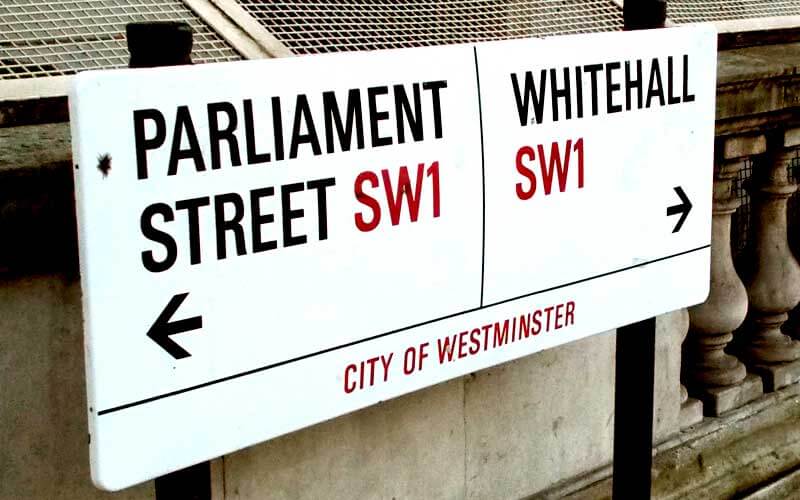New figures have shown how government changes made 12 years ago have significantly reduced the impact of increased funding for a scheme that helps disabled people make access improvements to their homes.
They show how a key change to the way the disabled facilities grant (DFG) scheme operated – introduced by the coalition government in 2011 – led to a fall in funding from local authorities while central government was increasing funding over the last eight years.
DFGs provide funding for adaptations to disabled people’s homes, such as ramps, handrails, stairlifts and specialist equipment, with grants administered by local authorities.
Funding for the programme comes from both central government and local authorities.
Analysis of figures provided by the Department for Levelling Up, Housing and Communities (DLUHC) in response to a freedom of information request shows it is now costing – on average – about twice as much in real terms government funding to fulfil each successful DFG claim in England than it did more than a decade ago.
Foundations, the national body for DFGs and home improvement agencies, which is funded by the government, told Disability News Service (DNS) that it was the 2011 policy change that explained the fall in council DFG funding.
Before 2011, local authorities had to provide £40 of funding for every £60 provided by the government for DFGs.
But in 2011, this requirement was removed by the coalition government.
Paul Smith, director of Foundations, told DNS: “Since this requirement was removed most local authorities have decreased the amount they contribute… this is why the number of DFGs hasn’t increased at the same rate as the increase in government funding.”
The Department of Health and Social Care (DHSC) has declined to say if it agrees with Foundations that the 2011 policy was to blame for the reduced impact of higher central government funding.
An independent review of the DFG scheme for the government in 2018 – which Foundations worked on – highlighted concerns that local authority contributions towards DFGs had fallen in recent years, and so the number of homes adapted had not significantly increased.
The review showed that local authority contributions to DFG funding had fallen from more than 40 per cent in 2009 to less than five per cent in 2016, following the change in policy in 2011.
In 2010-11, £167 million was allocated by the government for DFGs, while it was estimated at the time that about 40,000 grants would be made (roughly £4,175 per grant).
But the information released to DNS in the freedom of information response shows that this compares with £573 million in government funding in 2021-22, when 48,055 DFG claims were completed (roughly £11,900 per grant).
Allowing for the effects of inflation, DNS has calculated that it is costing approximately twice as much in central government funding for each completed grant as in 2010-11.
DLUHC claimed in its freedom of information response that it “does not hold data on how much additional funding was provided by local authorities towards Disabled Facilities Grants”.
DHSC, which is also involved in the DFG system, said the average grant amount had increased, while the costs of labour and building materials have been increasing, as has the number of more complex cases.
But Foundations said the increase in the average grant amount was “mostly down to inflation”.
Meanwhile, a DHSC minister has been caught claiming that extra government DFG funding is new money, even though it was first announced five months ago.
DHSC and DLUHC announced earlier this month that the government was providing an “extra £50 million home adaptation funding”.
Helen Whately, the minister for adult social care, announced that the “new funding” would “help thousands more people have homes fit for their needs – and faster”.
Although the press release said the funding was announced as “part of the Next steps to put people at the heart of care plan” and “has been allocated to local authorities from today”, it failed to point out that the “new funding” had already been announced in April.
Two non-user-led lobby groups – the Voluntary Organisations Disability Group (VODG) and the British Healthcare Trades Association (BHTA) – both welcomed the announcement and appeared to treat it as new funding.
BHTA said that “any additional funding for vital home adaptations is to be welcomed”, while VODG – which represents service-providers – also referred to it as “additional funding”, although it later accepted that it knew the money had previously been announced.
In July, DNS reported that DHSC had abandoned its pledge to consult on three key improvements to the DFG scheme.
A note from the editor:
Please consider making a voluntary financial contribution to support the work of DNS and allow it to continue producing independent, carefully-researched news stories that focus on the lives and rights of disabled people and their user-led organisations.
Please do not contribute if you cannot afford to do so, and please note that DNS is not a charity. It is run and owned by disabled journalist John Pring and has been from its launch in April 2009.
Thank you for anything you can do to support the work of DNS…

 ‘Real danger’ that disabled people will not benefit from £39 billion for social and affordable homes
‘Real danger’ that disabled people will not benefit from £39 billion for social and affordable homes Reports send separate warning shots to English and Scottish governments on social care reform
Reports send separate warning shots to English and Scottish governments on social care reform Ministers could face legal action over ‘homes not hospitals’ failure after treating activists ‘with utter contempt’
Ministers could face legal action over ‘homes not hospitals’ failure after treating activists ‘with utter contempt’